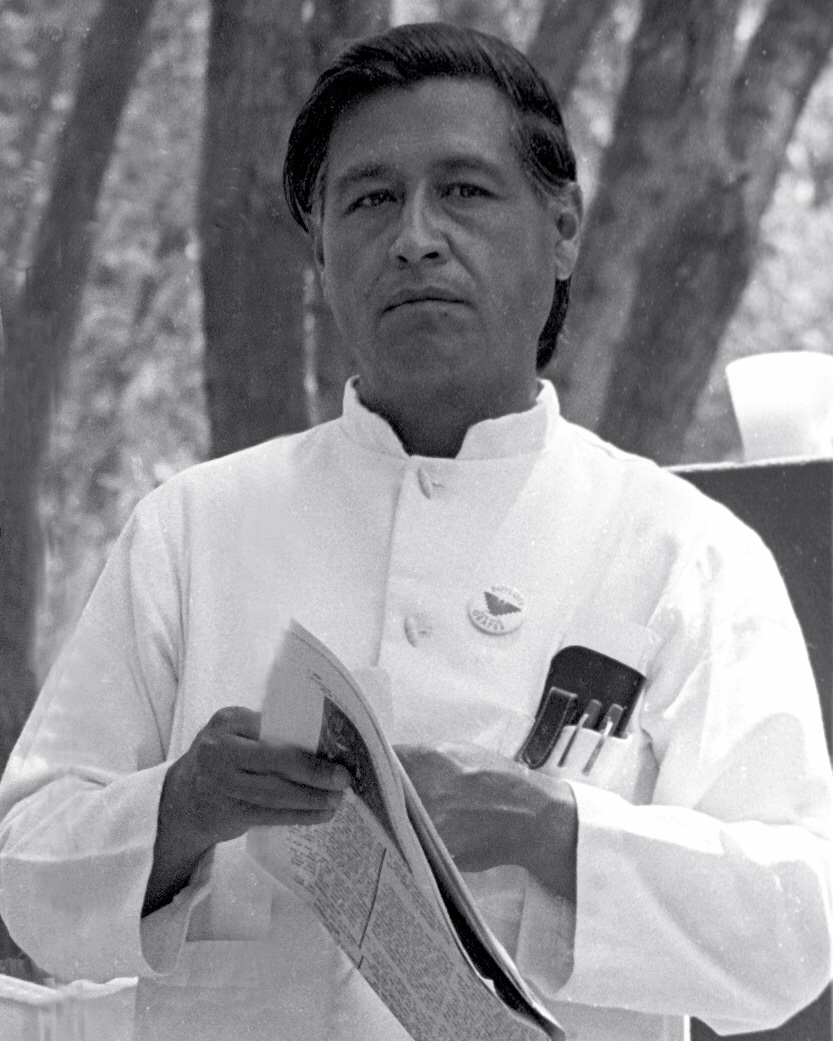Cesar Chavez was a notable figure whose dedication to improving the lives of farm workers left an indelible mark on American history. Born into a Mexican-American family, he grew up experiencing the hardships of agricultural labor firsthand. Chavez transcended his early struggles to become a labor leader and civil rights activist, passionately advocating for social justice.
Throughout his life, Chavez was at the forefront of the farmworker movement, co-founding the National Farm Workers Association and using nonviolent tactics to secure better wages and working conditions for agricultural laborers. His legacy is further honored by the Presidential Medal of Freedom, awarded posthumously, recognizing his tireless commitment to workers’ rights and his influential role in American civil rights advocacy.
Key Takeaways
- Cesar Chavez was a transformative labor leader and civil rights activist.
- He co-founded the National Farm Workers Association to combat labor injustice.
- Chavez received the Presidential Medal of Freedom for his contributions to society.
Early Life and Education
Cesar Chavez, a prominent figure in civil rights history, has a rich story that began with a modest upbringing, shaped by challenges and a deep-rooted dedication to improving labor conditions for farmworkers.
Family Background and Childhood
Cesar Chavez was born on March 31, 1927, in Yuma, Arizona. His childhood was marked by the hardships of the Great Depression, which uprooted his family and forced them into a life of migrant labor. The struggle his family faced as Mexican Americans working the fields would deeply influence his life’s work.
Education and Formative Years
His early life was spent moving throughout California due to his family’s financial strain. Disrupted education and poverty went hand in hand with his early experiences of discrimination. The frequent relocations meant Chavez attended numerous schools, yet he valued education and later used those lessons in his activism.
Military Service and Community Activism
At 17, Chavez joined the U.S. Navy, serving for two years. After his service, he returned to civil life and became involved with a community service organization mentored by Fred Ross. This period honed his skills in Latino civil rights advocacy.
Marriage and Children
Chavez met Helen Fabela and they married in 1948. They built a family together, having eight children. His family became his support network as he ventured further into labor organizing.
Foundational Work in Organizing
In partnership with Dolores Huerta, Chavez co-founded the National Farm Workers Association, which later became the United Farm Workers (UFW). His work began in earnest when he led this organization in support of farmworkers’ rights, propelling the plight of these laborers into the national consciousness.
The Farm Worker Movement
The Farm Worker Movement propelled Cesar Chavez into the national spotlight as a leader for social justice. It enveloped a series of efforts addressing the plight of farmworkers, circling around fair wages, safe working conditions, and respect for their rights.
Formation of the NFWA and UFW
In 1962, Cesar Chavez, alongside Dolores Huerta, founded the National Farm Workers Association (NFWA). This organization aimed to unite farm workers to fight for improved compensation and working conditions. By 1966, the NFWA merged with the Agricultural Workers Organizing Committee to become the United Farm Workers of America (UFW), a robust labor union that became the driving force behind the farmworkers’ movement.
Key Strikes and Boycotts
The Delano Grape Strike in 1965 stands as a testament to Chavez’s influence. Farmworkers, spearheaded by the UFW, refused to work in the fields until they secured better wages from the grape growers. This strike was bolstered by a nationwide boycott of table grapes, which pushed farm owners to negotiate.
Political Influence and Legislation
Chavez’s activism extended beyond strikes. He played an instrumental role in the passage of the Agricultural Labor Relations Act in California in 1975, establishing the right of farmworkers to unionize and negotiate for better terms. Esteemed figures like Senator Robert Kennedy acknowledged and supported Chavez’s efforts, reflecting his significant political reach.
Activism Techniques and Philosophy
Chavez’s methods were deeply rooted in nonviolence, an approach inspired by Gandhi and Martin Luther King, Jr. From hunger strikes to peaceful marches, he employed these nonviolent strategies not just to demand improvements but to raise awareness about the harsh realities farmworkers faced, including pesticide poisoning and inhumane working conditions.
Legacy and Continued Impact
Cesar Chavez’s work left a lasting mark on the landscape of American labor rights. The UFW continues to carry on his mission, advocating for the rights of farmworkers across the United States. His tactics and philosophy have influenced a generation of activists and public awareness campaigns in the fight for equality and justice.
Reflection on Chavez’s Death and Commemoration
After Chavez died of natural causes in 1993, there was a surge of admiration and remembrance for his life’s work. Reflecting the depth of his influence, he was posthumously awarded the Presidential Medal of Freedom, and his birthday, March 31st, is observed as a state holiday in several states and a federal commemorative holiday, established during the Obama administration.
Frequently Asked Questions
In this section, you’ll find concise answers to some common questions about Cesar Chavez, offering insight into his key achievements and influences throughout his life.
What are the major accomplishments of Cesar Chavez?
Cesar Chavez is best known for founding the United Farm Workers (UFW), alongside Dolores Huerta, improving labor conditions for farm workers, and championing nonviolent protests.
What led Cesar Chavez to become a civil rights activist?
Chavez’s personal experiences of harsh labor conditions and injustices faced by farm workers inspired him to become a civil rights activist and advocate for their rights.
How did Cesar Chavez’s upbringing influence his activism?
Growing up in a migrant farmworker family that experienced hardship and displacement, Cesar Chavez’s passion for advocating workers’ rights was deeply rooted in his early experiences of poverty and social inequality.
Can you detail Cesar Chavez’s contributions to the labor movement?
Chavez’s contributions to the labor movement include his role in organizing the Delano Grape Strike, promoting the use of boycotts, and striving for better pay and conditions through the work of the United Farm Workers.
What is the significance of Cesar Chavez’s birthday in American history?
Cesar Chavez’s birthday, March 31st, is significant as a day to honor his legacy and is recognized in several states as a holiday. It serves as a reminder of his commitment to social justice and improving the lives of workers.
Who were Cesar Chavez’s parents and how did they shape his life’s work?
Chavez’s parents, Librado Chavez and Juana Estrada, were hardworking farm owners who lost their land during the Great Depression. They instilled in him values of hard work and resilience, going on to influence his lifelong fight for justice.







